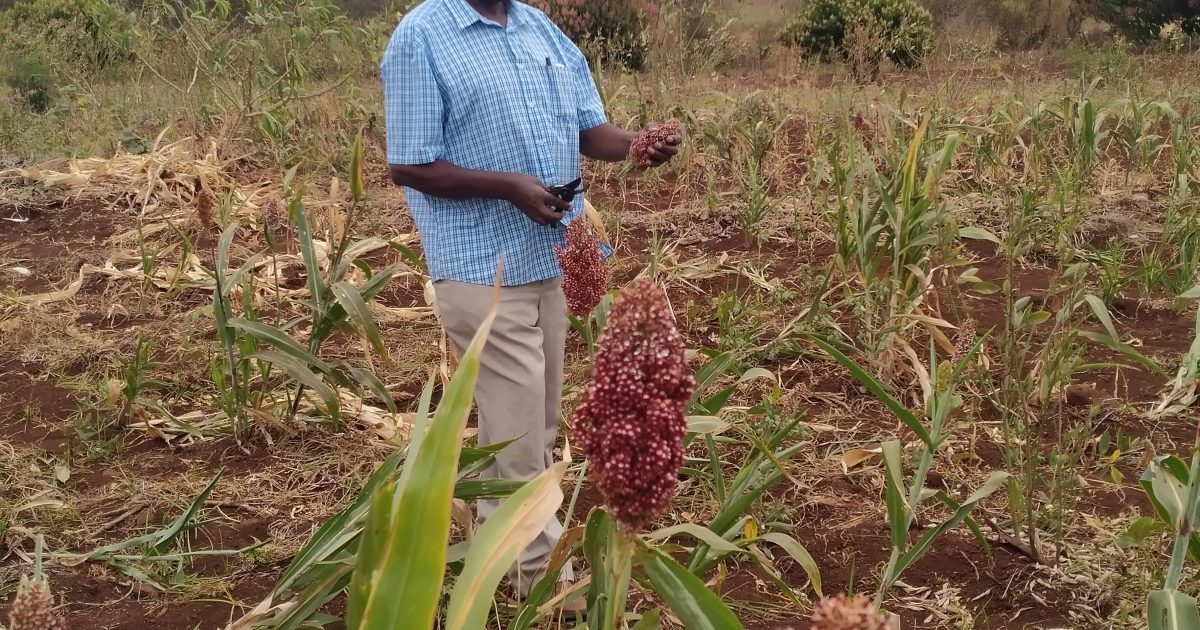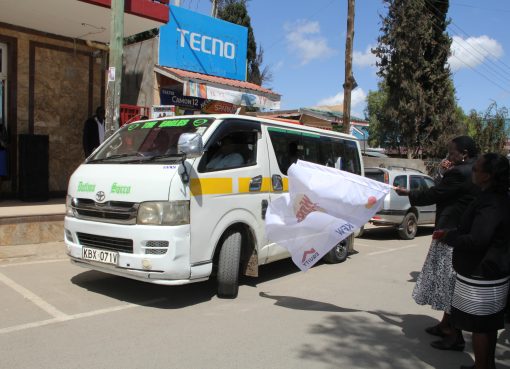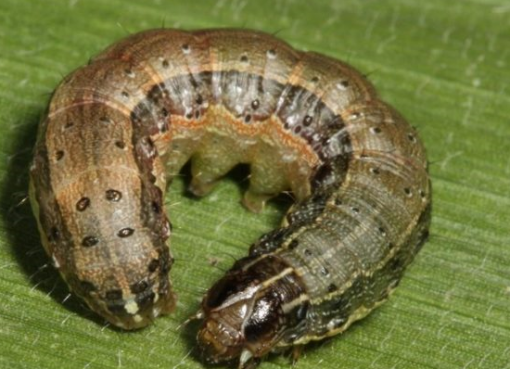Farmers growing various types of legumes are forming groups to produce quality seeds not only for sale, but for continuous supply of seeds amongst themselves to ensure sustainability.
Adoption of the dry crops varieties has been low mainly due to lack of foundation seed, lack of seed systems and an undeveloped value chain.

However, Mumua Waita farmers group from Itaa area in Makueni is one group that has come together purposely just to grow sorghum and green gram seeds.
David Kitavi, Chairman of the 15-member group says embracing a new variety of sorghum that is drought tolerant has seen most of them, the elderly especially benefit from the crop not only for seeds but also as food, particularly porridge.
“We have very few youths in our group and for some of us who are elderly and others diabetic, the sorghum flour has sustained us and we are healthy because of eating healthy food that does not contain any poison since we don’t use chemicals on the new crop,” he says.
Although Kitavi says they used to grow the Gadam sorghum variety and had been contracted by the Kenya Breweries limited, most have now moved away from this variety as it is usually attacked by birds at very early stage and they end up harvesting very little or none at all.
“We had ready market with breweries when we were planting the Gadam variety but most of us stopped because of pest and diseases, but now we have shifted to this new variety known as Egerton University Sorghum 1 (EUS1) introduced by USAID. We are producing seeds and food and with ready market,” he added.
“I can confidently say we are getting good money with this new variety. Previously, we were getting around Sh24 a kilo but for the new variety we are selling at Sh35 per kilo and with an upcoming contract with Egerton, we have been assured of Sh50 per kilogramme,’’ she added.
The drought tolerant crops have been introduced through Feed the future programme by the USAID under the Kenya Accelerated Value Chain Development Program (AVCD) targeting around 35,000 beneficiaries.
AVCD drought tolerant crops component is working to promote these crops, which are drought tolerant and proven to provide an assured harvest even in bad years when the rainy season is too short for other crops to reach maturity.
Egerton University scientist and seed expert Bernard Towett said that the new sorghum variety does well in the semi-arid and fits well in the intercropping systems making it an excellent alternative for maize which would be a poor choice in the dry area of Makueni. “This particular crop can also be intercropped with green grams as a short term crop,” he said.

Specifically, Towett said that special attribute to the EUS1 variety is that it’s always green, has high nutrition value, not eaten by birds, susceptible to insect pests and can also be fed to animals as feeds, compared to the white Gadam variety whose market was mainly for EABL and which currently has gone down.
“We have contracted farmers to produce seeds. This time we have distributed them for free. We are doing breeding and seed production. We started in Elgeyo Marakwet and we are now in Turkana,” he said, noting that it’s the only crop that can survive in Turkana.
Towett further said that the brown like sorghum variety fits into the market especially if one is making porridge, whose demand is quite huge, but can also be blended with wheat flour and make bread which was an added value for the crop.
He explained that there was a lot of opportunity in the dry areas especially Makueni, Kitui and Tharaka to grow the EUS1 considering that the yield potential nationally was about 500 kilograms per hectare and that local farmers would get up to three tonnes per hectare from the new crop.
Interviewed by KNA, Wilson Lati from Kwakakulu area in Makueni County said he started planting sorghum in 2018 when he got a contract with EABL with Gadam variety but he says two years down the line, he gave up because of the birds that used to eat up his crop.
“Since I started planting the Egerton Mtama 1, the birds are the ones competing with me as they start coming just when am about to harvest so I normally beat them to their game,” the 74-year-old farmer says.
Lati adds that although the International Crops Research Institute for the Semi-Arid Tropics (ICRISAT), who have released the new improved varieties of sorghum have promised to buy his, he is really not worried if they fail to do so as he has already scouted for market as far as from Kajiado and already farmers are just waiting to buy from him and at a good price.
He adds that apart from a new variety of sorghum withstanding the climate, it is also good for conservation agriculture, helps in soil erosion and also takes only three months to mature.
The drought tolerant crops subcomponent that is being undertaken by AVCD covers green grams, sorghum, millets, pigeon peas, cow peas and ground nuts.
The crop varieties according to experts will not only mitigate the effects of climate change by ensuring that farm families have access to nutritious food even in bad seasons, but will support production, post-harvest management, marketing, value addition as well as financial products for the value chains.
The selected drought tolerant crops are supposed to increase incomes and improve the nutrition status of 100,000 households by over 25 per cent and also increase yields of targeted crops by 30 per cent, reduce post-harvest losses by 30 per cent and establish at least one market producer group in each target county.
By Wangari Ndirangu





